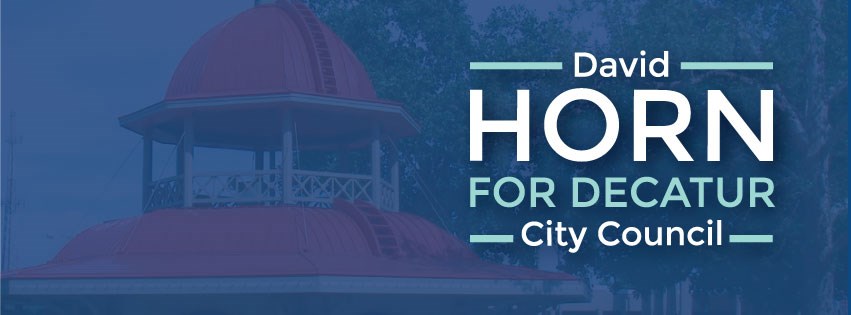
David Horn voted no on the 2020 budget
I have three concerns regarding the 2020 budget: the decrease in the number of sworn police officers at a time when calls for service is going up, barriers to growth of new industries such as cannabis-related businesses, and funding for neighborhood revitalization at a level that is not commensurate with the challenges.
1) THE CITY’S NEIGHBORHOOD REVITALIZATION INITIATIVE AS BUDGETED IS NOT FUNDED AT A LEVEL THAT IS COMMENSURATE WITH THE MAGNITUDE OF THE PROBLEM – The city continues to lack a bold and aspirational plan for reversing its single greatest threat: population decline. This budget falls short of revitalizing our neighborhoods and encouraging people to move back to our city. The 2020 budget outlines $6,578,000 for neighborhood revitalization, but the majority of the spending is on pre-existing programs that have been in place for years such as Community Development Block Grant, HOME Funding, State and Local Motor Fuel Tax, and funding for the Economic Development Corporation.
Given the long-term decline of some of our neighborhoods, it is likely that the traditional sources of funding for neighborhood revitalization such as those stated above are not sufficient to reverse long-term trends. Moreover, the city lacks an estimate for how much money is necessary to fully implement neighborhood revitalization initiatives. Instead of a top-down neighborhood revitalization approach, neighborhoods might benefit more from a citizen-driven approach to developing programs that best suit the needs of the particular neighborhoods, and the city in turn identifying funding sources to implement these programs.
2) THE CITY COUNCIL HAS PLACED BARRIERS TO THE GROWTH OF NEW INDUSTRIES AND REDUCED POTENTIAL REVENUE GROWTH – The city council’s decisions to prohibit cannabis dispensaries and other cannabis-related businesses such as cultivation centers and processors, and the prohibition of public consumption of cannabis in locations such as tobacco shops unnecessarily hinders future growth potential. Decatur is recognized as a global agribusiness leader, yet the council prohibited a legal industry from doing business in Decatur. At minimum, this decision creates unnecessary barriers for medical and recreational consumers of cannabis by having them drive to nearby cities to purchase a legal product, and in doing so, the city is losing tax revenue on the sales. Furthermore, whatever the negative impacts the city will encounter from the state legalizing cannabis, the city will lose any mitigating revenue to nearby municipalities through its decisions to prohibit cannabis-related businesses in the city.
3) THE NUMBER OF POLICE OFFICERS IS DECREASING WHILE CALLS FOR SERVICE ARE INCREASING – The city is seeing an increase year to date in the number of calls for service (over 1,000 more calls this year [2%] compared to 2018), experiencing an increase in the number of criminal arrests (over 200 more arrests, 5%), and an increase in homicides (12 vs. 10). Simultaneously there has been a decrease in the number of sworn police officers (153 budgeted vs. 141 actual). The increasing number of calls and arrests argues for a return to 153 officers instead of the proposed decrease. Moreover, we are decreasing the number of police officers and firefighters while expanding the amount of area covered through annexation.
We have the money to support additional police officers and firefighters in 2020 using the expected surplus from 2019 (which was generated in part because of $1.443 million in public safety expense savings year to date due to the lower number of police officers in 2019 than budgeted). It is unclear how the combination of fewer police officers and more calls will give the police department the resources needed to maintain current responsibilities plus additional proactive public safety measures that the department may want to engage in such as increased community policing and greater efforts to reduce speeding in the city.
IN SUMMARY – Decatur needs ambitious initiatives to grow our population. A bold and aspirational plan for neighborhood revitalization will help strengthen ties current citizens have with our city and make Decatur more attractive to those individuals considering moving here. In addition, the city should be open to new types of businesses, particularly those connected to Decatur’s strengths in agriculture and manufacturing. For example, the city can raise revenue and grow jobs by allowing cannabis-related businesses such as dispensaries, cultivation centers and processors rather than opting-out and having these businesses in adjacent towns. Public safety is the city’s top priority and reducing the number of police officers at a time where calls for service and criminal arrests are increasing is counterintuitive, particularly given the budget surplus in 2019.
